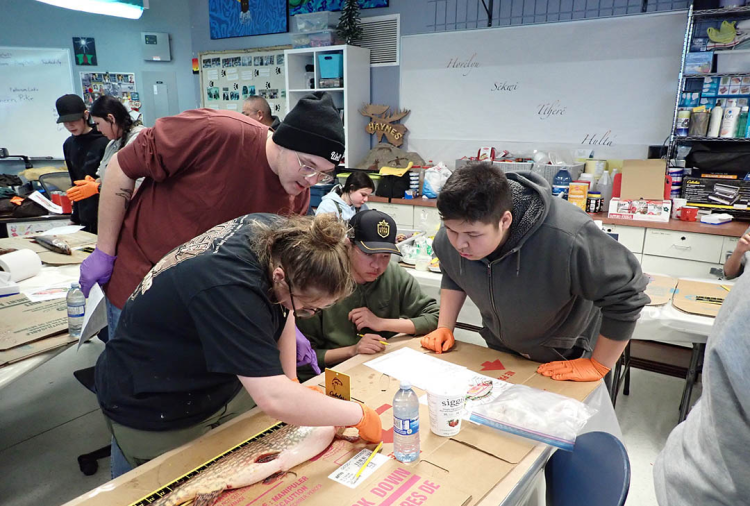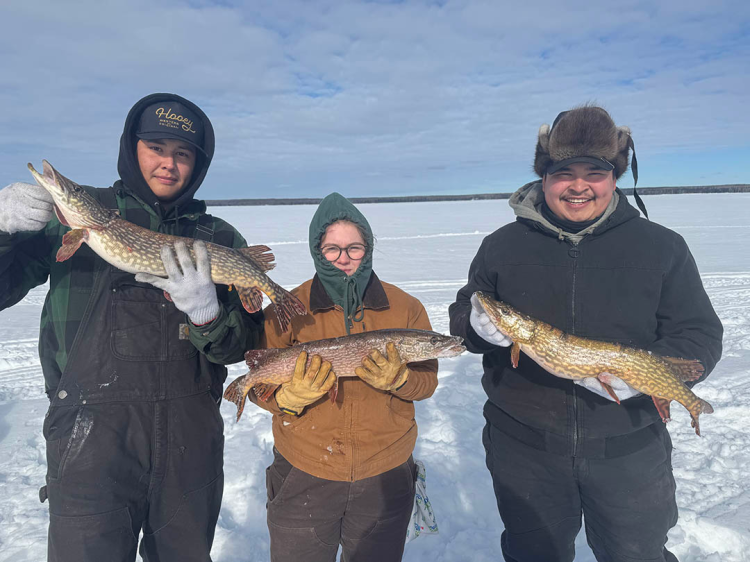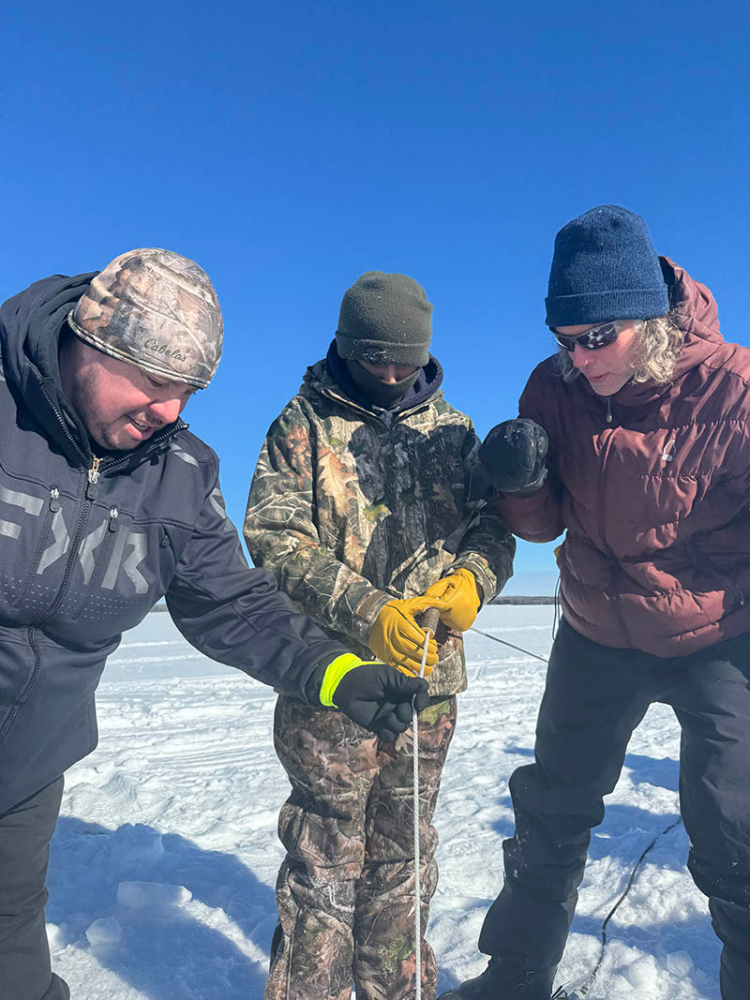This initiative is part of a broader effort to build practices that support the land, water, wildlife, and associated knowledge systems in Indigenous communities while contributing to Canada's biodiversity conservation goals.

Meadow Lake Tribal Council youth and SENS students identify fish samples from nearby waterbody. (Photo: Dr. Colin Whitfield)
Over a series of winter camps, a group of SENS researchers, graduate students, and interns worked alongside MLTC staff and community members to train high school students from Buffalo River Dene Nation, Birch Narrows Dene Nation, Clearwater River Dene Nation, Ministikwan Lake Cree Nation, and Makwa Sahgaiehcan First Nation in techniques to collect, observe, measure, and analyze data and samples related to lake water, aquatic invertebrates, fish health, and terrestrial wildlife.

Meadow Lake Tribal Council members collaborate with SENS researchers and students at a winter camp. (Photo: Dr. Colin Whitfield)
Data collected from the camps will form a basis for future long-term environmental monitoring initiatives that MLTC and the First Nations are working to implement. The goal is to track environmental change on traditional lands and waters that can inform future conservation and environmental stewardship decisions.
For SENS, it's an important opportunity to go beyond the university classroom and hopefully initiate a passion for sustainable land practices among the youth in communities.

Meadow Lake Tribal Council community member, youth, and Dr. Colin Whitfield, SENS, extract a water sample. (Photo: Dr. Colin Whitfield)
"Our involvement is more than simply providing support through forms of training," said Dr. James Robson (PhD), SENS and UNESCO Co-Chair in Biocultural Diversity, Sustainability, Reconciliation, and Renewal. "It's also an opportunity to listen and learn from knowledge holders, including youth, Elders, and community leaders, about how academic institutions can best serve these communities to support conservation efforts."
Robson hopes that this initiative is the start of something that will build over time, supporting not only the communities in their environmental conservation goals, but also will help shape the future of research at SENS.
Looking ahead, SENS will continue to collaborate with MLTC, providing knowledge and expertise during planned summer camps in July and August. Youth from the nine member First Nations will have the opportunity to practice water and soil sampling, peatland surveys, bird monitoring, amphibian studies, and plant surveys.
"We look forward to continuing our collaborations with MLTC as they continue to educate and engage their youth in building land-based connections and practices, and community-driven conservation work."













